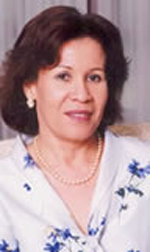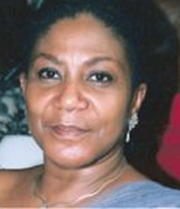Ghana: First Ladies Enter Campaign Trail

 |
| Mrs. Yvonne Nduom |
The increasing political activities of the First Ladies of presidential candidates are bringing balance to normally patriarchic playgrounds. The ladies contrast wih the high profile days of President Kwame Nkrumah whose Egyptian wife, Fatiah, was more of a family backdrop and was rarely seen in political campaigns.
The 'first ladies' are so much enriching Ghana’s democracy that even the former First Lady, Nana Konadu Agyeman Rawlings, wife of former President Jerry Rawlings, perhaps the most high-flying and driven First Lady Ghana has seen, not wanting to be left out, is on the campaign trail for the largest opposition party, the National Democratic Congress (NDC).
Ironically, incumbent First Lady, Mrs. Theresa Kufour, wife of President John Kufour, has not been seen on the campaign trail as Mrs. Rawlings. It is amazing to see pictures of Mrs. Rebecca Akufo-Addo, wife of the ruling New Patriotic Party (NPP) presidential candidate, Nana Akufo-Addo, at various Ghanaian Web sites campaigning and dancing the party’s signature campaign “kangaroo dance.” At the minority Convention People’s Party (CPP) website ghanaianjournal.com Mrs. Yvonne Nduom, wife of the CPP flagbearer, Paa Kawsi Nduom, is a regular feature.She is occassionally seen donating food items to various charities, making policy statements, and seeking votes for her husband and the CPP.
 |
| Mrs. Akufo-Addo |
None of the First Ladies are standing as parliamentary candidates unlike in Canada where Olivia Chow, wife of the leader of the minority National Democratic Party, Jack Layton, stood as a parliamentary candidate at the just ended elections and was re-elected.
While normally wives of vice presidential candidates are rarely seen in ads, websites, and campaign stops waving and smiling, Mrs. Samira Bawumia, the lovely and beautiful wife of Mahamadu Bawumia, the running mate of Nana Akufo-Addo, is an exception. Mrs. Bawumia is seen gracing newspaper covers, websites and campaigning for her husband’s party. Marginally, Mrs. Lordina Mahama, wife of the NDC vice presidential candidate, John Mahama, has shown up at some campaign stops, played hardball politics and promised good omen for Ghana if the NDC is elected.
With the trail blazed by Mrs. Rawlings during the almost 20-year-rule by her husband, wives of presidential candidates have become part of their husbands’ work, complimenting their jobs as advocates for women’s development in a culture where certain values stifle women’s progress.
In Brong Ahafo, Mrs. Akufo-Addo called on women to vote for her husband to improve their living conditions, as build-up to the work of what Mrs. Kufour and her husband have done. Politics aside, Mrs. Rawlings actually set the women’s development matters rolling in contemporary Ghana.
Like wives of presidential candidates elsewhere in the world, nearly all of the wives of the Ghanaian presidential candidates are well educated. NPP’s Mrs. Bawumia has a degree in sociology and Mrs. Atta-Mills is an educationist. Such background has made the leading wives discuss women’s issues in broader Ghanaian development challenges insightfully.
The tough Ghanaian political campaign still makes the December 7, 2008 campaigns paternalistic and a man’s job. This makes the leaders’ wives lonely on weekends when their husbands are out in the campaign trail. But the loneliness is worth it for the larger progress of Ghana, especially in opening women’s issues for broader progress against the backdrop that some aspects of the Ghanaian culture suppresses women’s development and need to be refined for progress.
